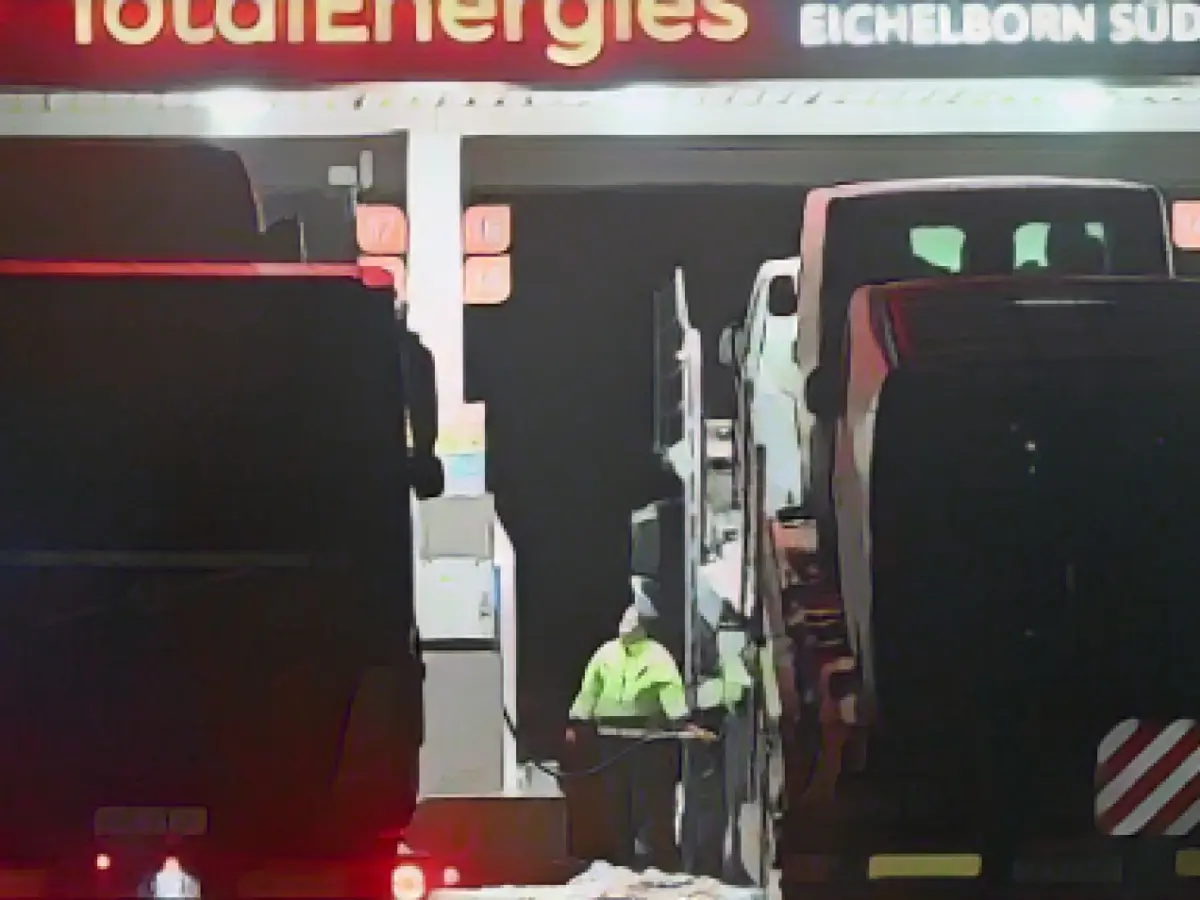Truck toll hike stirs backlash from haulage companies in Saxony-Anhalt
The upcoming truck toll surge on December 1st has drawn scorn from haulage firms and associations in Saxony-Anhalt. This hike in tolls is likely to result in escalated consumer prices, according to Sebastian Schenk, the Managing Director of the General Employers' Association for Saxony-Anhalt. This will impact an array of products, ranging from food to garments, and consumer goods. In the eyes of Schenk, the toll increase amounts to a hidden tax hike, imposing an extra burden on consumers and businesses alike.
The Bundestag approved these measures in October as part of a cooperation from the traffic light coalition. The law mandates the addition of a CO2 surcharge to the existing toll to give more weight to pollutant emissions. This surcharge amounts to 200 euros per ton of CO2. As a consequence, the toll rate per kilometer will increase from 19 to 34.8 cents for the cheapest truck class, like for instance.
The Federal Ministry of Transport expects additional expenses to be shifted to customers, but assures that toll expenses represent only a small portion of transport costs and an even smaller chunk in the total cost of the final product, according to a draft bill. As a result, the influence on consumer price level is expected to be marginal, per the draft.
Haulage companies like TMG in Bitterfeld-Wolfen face considerable effort due to the changing toll costs, particularly during the holiday season, as stated by Torsten Sohr. The company anticipates additional costs of approximately 4.1 million euros per year for its 200 vehicles, which will inevitably need to be passed on to customers. The short-term implementation of the law poses unique challenges, as contract negotiations took place after the law's October passage.
Sohr raised the issue of dismissing empty runs despite lower CO2 emissions. Moreover, he advocates for a standardized European billing model.
The Federal Association of Freight Transport, Logistics, and Waste Disposal (BGL) asserts that the toll increase will fail to produce the desired results. According to board spokesperson Dirk Engelhardt, the German government's aim to increase the usage of electric trucks is not practical, given the inadequate charging stations and limited availability of electric trucks on the market.
Overview of Toll Tariffs and CO2 surcharge (Toll Collect, Draft Law)
You might also be interested in:
Revised and Vary Sentences
- The truck toll surge set for December 1st has attracted robust criticism from haulage firms and associations in Saxony-Anhalt, with the costs likely being passed down to consumers.
- Sebastian Schenk, Managing Director of the General Employers' Association for Saxony-Anhalt, anticipates higher consumer prices for various products, such as food, clothing, and consumer goods, as a consequence of the truck toll increase.
- In response to the truck toll surge, the Federal Ministry of Transport expects marginal impact on consumer prices, as toll expenses contribute only a small portion of transport costs and the total cost of the final product, as per the draft bill.
- Torsten Sohr from TMG haulage company in Bitterfeld-Wolfen highlights concerns over the additional costs for haulage companies, especially during the festive season, with the company projected to incur an annual increase of 4.1 million euros for its 200 vehicles.
- Criticisms abound, with BGL predicting that the toll surge will fail to achieve the desired result, as electric trucks remain scarce and charging stations are absent, according to board spokesperson Dirk Engelhardt.








